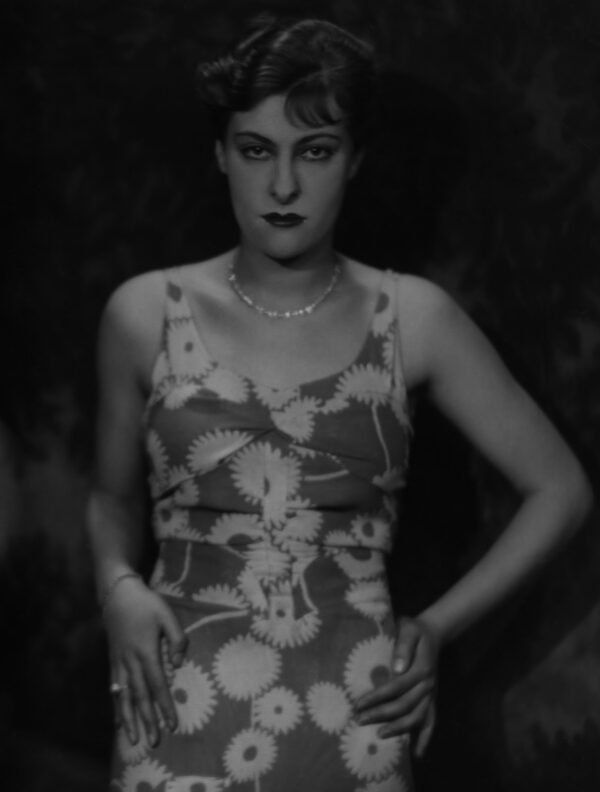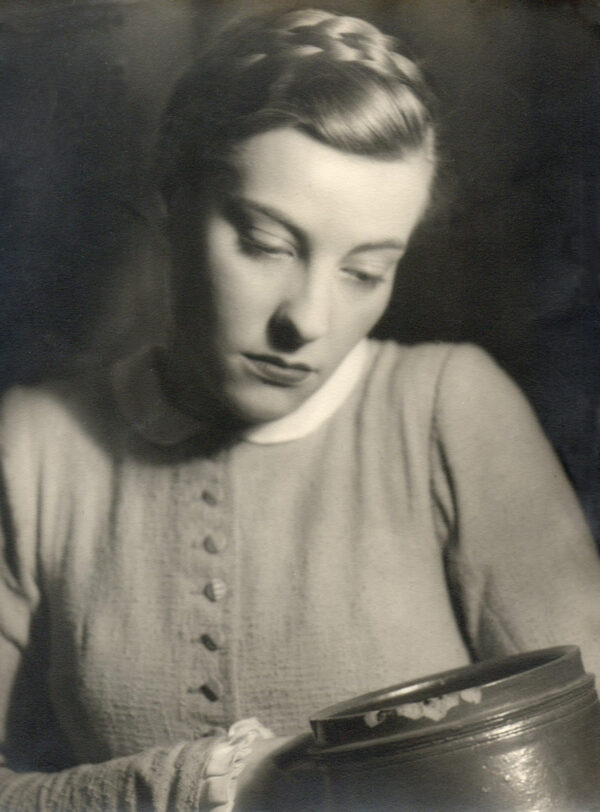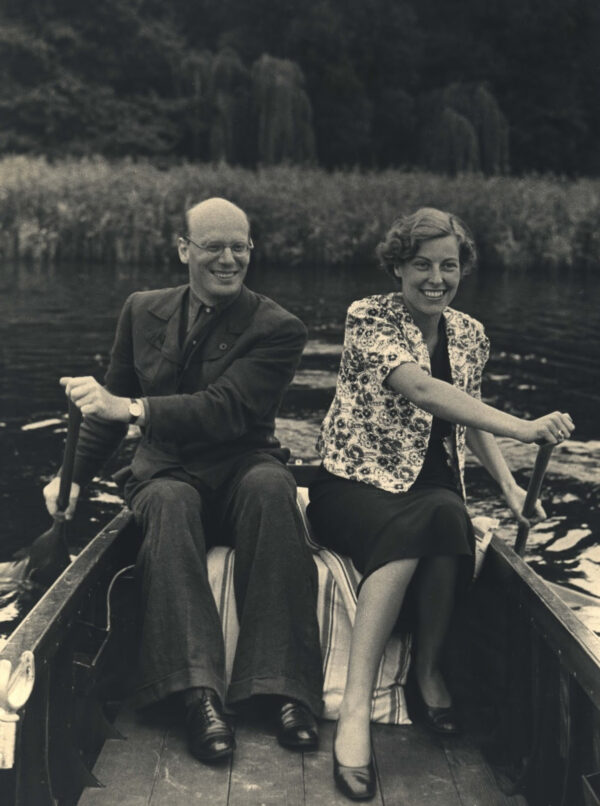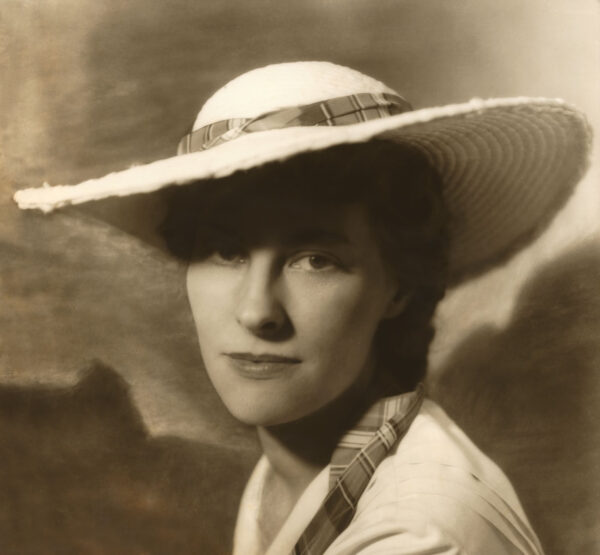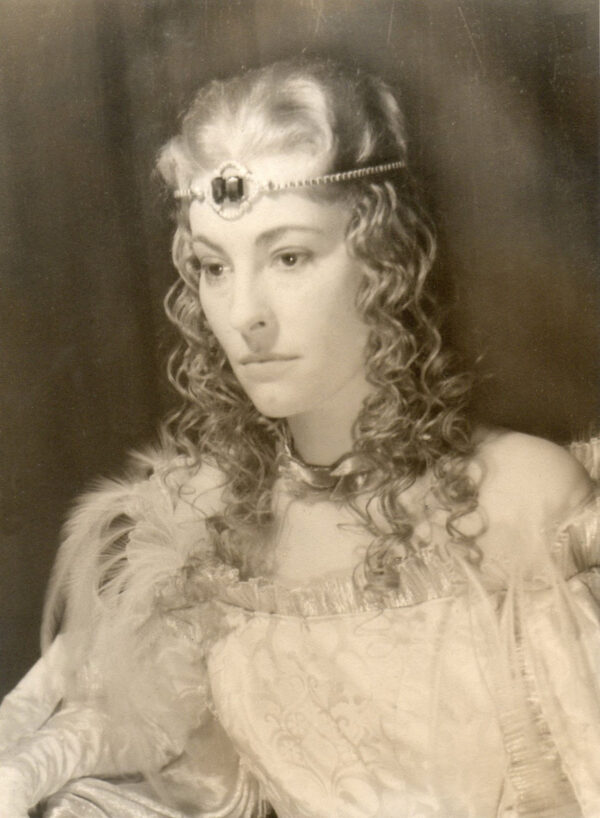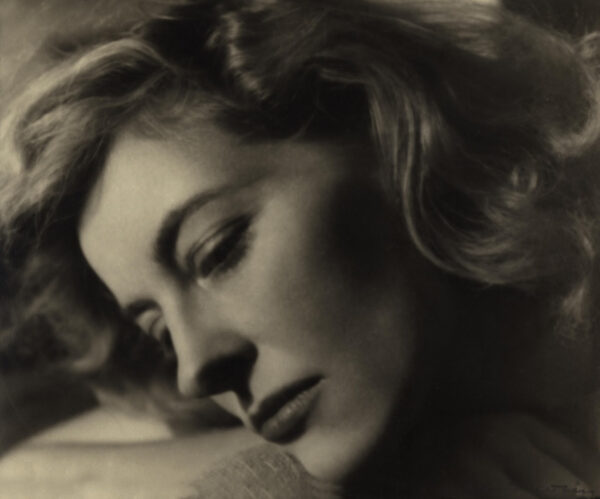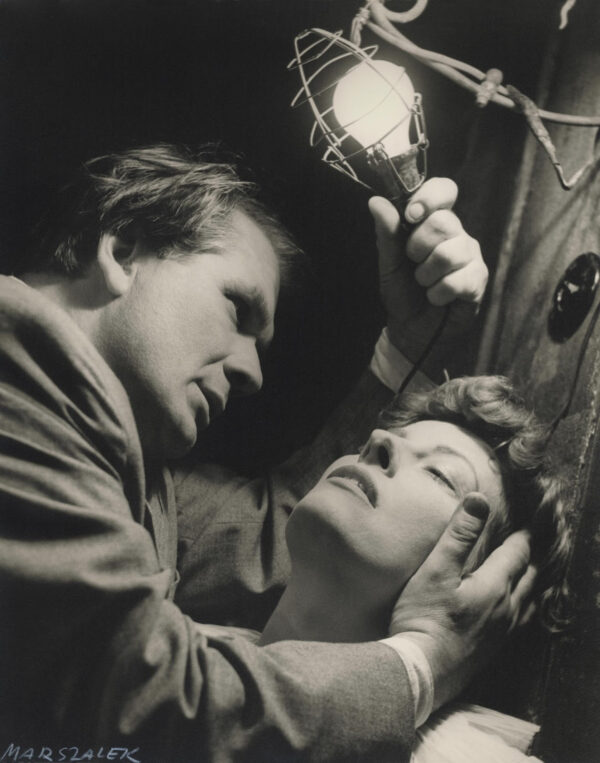Marianne Hoppe - Estate
With the help of funding from the German Research Foundation, the Cultural Foundation of the States, and the Free State of Bavaria, the German Theatre Museum was able to acquire the artistic estate of actress Marianne Hoppe (1909-2002) from the private collection of her son, Benedikt Hoppe. On this occasion, the German Theatre Museum invited guests to a press information event on April 11, 2016, where the sponsors of the acquisition and representatives from the museum discussed the estate and the reasons for its purchase. A display exhibition featuring selected objects from the estate was also presented that day.
Even during her lifetime, the highly talented stage and screen beauty, born in Rostock in 1909, was considered a legend. For seven decades and through three different political regimes, she fascinated audiences with her many prominent roles in classical and modern theatre as well as in film. The young commercial student and daughter of a country estate owner from Felsenhagen, Brandenburg, relentlessly pursued her dream of becoming an actress. At the end of 1927, she took private lessons with Berthold Held, the head of the acting school at Max Reinhardt's German Theatre in Berlin, as well as with actresses Lucie Höflich and Ilka Grüning. By early 1928, she was already on stage in minor roles alongside leading members of the Reinhardt ensemble. The press also took notice of her, particularly in 1930 in the play Die liebe Feindin by A.P. Antoine, directed by Gustaf Gründgens, her future husband, acting partner, director, and artistic director of the Prussian State Theatres in Berlin, who hired her for the 1935/36 season. Following her film debut in Der Judas von Tirol (1933), she gained overnight fame as Elke Volkerts in the literary adaptation Der Schimmelreiter a year later, which marked the beginning of her exceptional career at the Reich's leading theatre. As Gretchen, Emilia Galotti, the Maid of Orleans, Antigone, or Leonore, she captivated her audience. At the same time, she garnered millions of viewers in films such as Capriolen, Eine Frau ohne Bedeutung, Gustaf Gründgens’ adaptation of Effi Briest (Der Schritt vom Wege), Romanze in Moll, and Auf Wiedersehen Fransziska!
However, all the glamour had a dark side. By marrying the general director of the Prussian State Theatres, which were under the special supervision of Hermann Göring, in 1936, Marianne Hoppe also came under increased scrutiny from the National Socialist terror regime. Furthermore, her marriage to Gustaf Gründgens, who was disparaged in Klaus Mann’s 1936 “key novel” Mephisto as a protégé of the regime, was privately dismissed as a marriage of convenience, entered into solely to protect the openly homosexual theatre man from the Nazis' persecution. The suspicion of a sham marriage was not unfounded, as attacks on Gustaf Gründgens’ homosexuality had appeared in the Völkischer Beobachter on May 5, 1936, prompting him to flee to Switzerland that same day with the firm intention of emigrating. However, at Göring's explicit request, who appointed him to the Prussian State Council on May 6, he returned. The possibility that the relationship between Marianne Hoppe and Gustaf Gründgens—both of whom were bisexual—could have been a romantic one has been publicly dismissed until very recently. Yet, the many notes and letters from Gustaf Gründgens to his wife found in Marianne Hoppe's estate suggest otherwise. Even after their divorce in May 1946, Marianne Hoppe, who was later involved with Therese Giehse and Anni Mewes in the 1970s, remained closely connected to Gustaf Gründgens until his death in October 1963.
After 1945, Marianne Hoppe began her second career, which lasted fifty years, when Gründgens brought the physically and psychologically exhausted actress back to the stage in 1947, specifically to the New Theatre in Düsseldorf, later known as the Düsseldorf Schauspielhaus, of which he was the new director. Alongside him as actor and director, she appeared in November 1947 in the German premiere of Sartre’s Die Fliegen, in January 1949 in Goethe’s Tasso, and in 1950 in the German-language premiere of T.S. Eliot’s Cocktail Party. Parallel to her guest roles in Düsseldorf, she found a new type of role in Berlin at the State Acting Stages starting in 1950: that of the “Knacksdamen,” a colloquial term for psychologically fractured women in the modern American dramas of Tennessee Williams, Eugene O’Neill, and William Faulkner.
Contemporary works by Jean Giraudoux, Carl Zuckmayer, Eugène Ionesco, Jean Genet, and Friedrich Dürrenmatt, as well as the later plays of Thomas Bernhard, also provided her with a wide range of roles on all major German-speaking stages. A close personal relationship developed between her and Bernhard starting in 1974 when she played the role of the General in Die Jagdgesellschaft at the Schiller Theatre in Berlin alongside Bernhard Minetti and Rolf Boysen. In Robert Wilson's production of König Lear, she played the title role in 1990 in Frankfurt/Main. Most recently, the award-winning actress, who received numerous accolades for her work in theatre, film, and television, was seen at the Berliner Ensemble from 1993 to 1997 under the direction of Heiner Müller and Werner Schroeter (including as an acting teacher in Brecht's Arturo Ui, a role she “inherited” from Bernhard Minetti). In 2000, two years before her death, Werner Schroeter's film homage Die Königin, featuring her participation, was released.
The thematic coherence of Marianne Hoppe's estate, which reflects her long artistic life in all its stages, is particularly rare and offers a rich source of material for theatre and film research. It contains over a thousand letters from theatre and film personalities, writers, and artists, including Gustaf Gründgens, Hermine Körner, Käthe Dorsch, Therese Giehse, Werner Krauss, Käthe Gold, Elisabeth Bergner, Berthold Viertel, Helmut Käutner, Jürgen Fehling, Hans Lietzau—as well as contemporary figures like Robert Wilson, Claus Peymann, and Botho Strauß. The correspondents also include publishers such as Rudolf Augstein and Axel Springer, philosopher Theodor Adorno, and writers like Carl Zuckmayer, Botho Strauß, Thomas Mann, and Golo Mann.
The estate is also enriched by extensive collections of diary entries and personal notes, along with annual calendars maintained by Marianne Hoppe over nearly five decades, in which she recorded everyday occurrences as well as significant events. Noteworthy are her personally annotated role and reading manuscripts, numerous engagement contracts, and personal documents such as marriage and divorce papers. Even in the family letters addressed to Marianne Hoppe, whose professional life was always closely intertwined with her private life, her tasks at the theatre are frequently discussed.
A particularly valuable component of the estate consists of over 1,500 film, theatre, and private photographs, some of which are quite rare. Notable photographers include Rosemarie Clausen, Willi Saeger, Ruth Wilhelmi, Liselotte Strelow, and Rudolf Betz, as well as Abisag Tüllmann, Isolde Ohlbaum, and Stefan Moses. This opulent visual part of the estate, which includes photographs taken during the 1999 filming of Werner Schroeter's Die Königin, impressively documents the exceptional acting career of Marianne Hoppe.
A summary of the contents of the estate will soon be publicly available through the library union catalogue. The estate can be accessed for research and interested parties, albeit in a limited capacity and with consideration of potential personality rights, even prior to its cataloguing.
